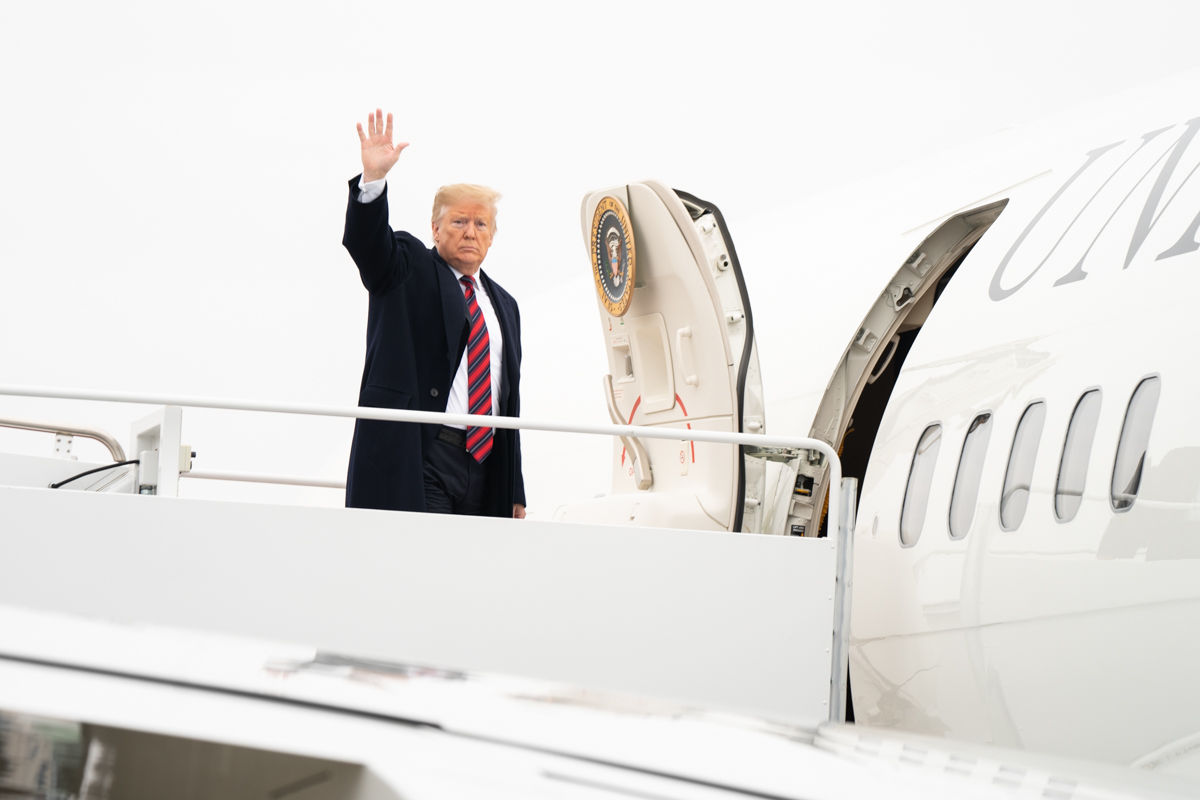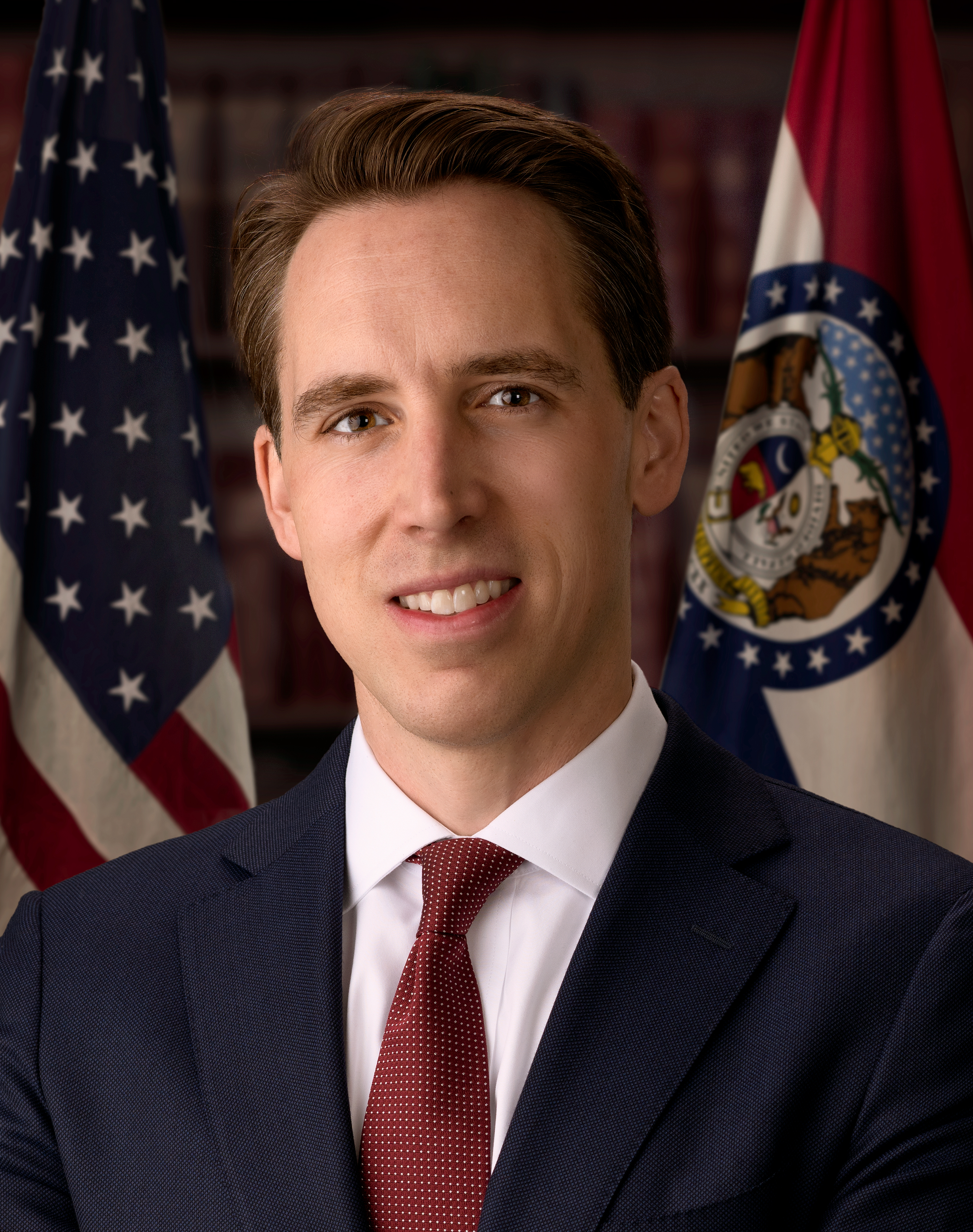Trump Looks to Enforce Fairness on Social Media

The smarter way to stay on top of broadcasting and cable industry. Sign up below
You are now subscribed
Your newsletter sign-up was successful
President Donald Trump has signaled that social media platforms need to be fair--specifically talking about not censoring conservative speakers--and said his Administration would try to make sure they were.
He called Thursday (July 11) a "historic day" and said that never before had so many social media "journalists and influencers" come together, with power he suggested that trumps that of the traditional media he so frequently attacks, and did again.
Related: Summit Billed as Social Media Bashing Exercise
The "historic day" the President was referring to was a meeting, or what appeared to be more of an audience for the President and a couple of speakers, at the White House, where conservative bloggers and others gathered for what was billed as a "social media summit" to talk about the impact of social media. The President said the room represented a half billion followers online, and said even that might be a low number.
He said the agenda was to discuss the future of social media and its challenge to the "media gatekeepers and corporate censors."
But he also said social media platforms are trying to censor those influences, and he would be calling them to account in a White House meeting in the next month, as well as having his Administration explore what options it has to enforce fairness. "We are going to be calling a big meeting of the companies. They have to be here," he said. It is not clear how he would ensure that was the case.
"I am announcing that we will ask representatives of the major social media platforms to join me at the White House over the next month. We will have a big meeting and a real conversation." He said he might invite some of the participants who were at Thursday's meeting as well.
The smarter way to stay on top of broadcasting and cable industry. Sign up below
Related: Sen. Hawley Blasts Social Media as Unproductive 'Peril'
But in the meantime, "I have directed my Administration to explore all regulatory and legislative solutions to protect free speech and the free speech rights of all Americans." He said he wanted to see more transparency, accountability and freedom. "Big Tech must not censor the voices of the American people," he said. He advised the bloggers to use their power "wisely."
"This technology is so powerful and important, and it has to be used fairly," he said.
"Interestingly, it is usually Republicans that cry foul over enforced fairness. In fact, it was the FCC's deep-sixing of the so-called Fairness Doctrine, which required broadcasters to seek out both sides on controversial issues, that is credited with the rise of conservative voices on that medium.
As to those gatekeepers, he added social media to the traditional media he said were colluding with Democrats to suppress conservative speech. He said he agreed with a First Amendment attorney's statement that Big Tech was weaponizing their platforms to attack conservative thought and humiliate critics, and have lied to Congress about data theft and media manipulation.
The President also said those social media users, which include himself, were getting their message straight to the people without having to go through the "fake news" filter. "With amazing determination and creativity you are bypassing the corrupt establishment, and it is corrupt," he told the crowd. "And you are bypassing the very, very corrupt media."
Also at the meeting was the President's senior advisor for digital strategy, Dan Scavino, who the President brought to the dais for a handshake. "Hillary had 28 people and I had Dan," he said.
The President said some of the bloggers in his audience were "extraordinary," adding: "The crap you think of is unbelievable." He also thanked them "on behalf of the nation" for their "courage" in getting the "honest word out" in many cases.

Sen. Josh Hawley (R-Mo.), a freshman senator who has made attacking the edge his signature issue, was asked by the President to set the stage.
"The establishment media, the fake media say there is no censorship in social media," he said, as the President smiled in the background. "You and I know that's not true. The truth is the social media giants would love to shut us down and shut us up. They would love to shut him [the President] up more than anyone else and we can't let them."
Referring to social media's Communications Decency Act Sec. 230 exemption from liability for third party content--an exemption Hawley has been gunning for--the senator said: "I think we need to say to Google and Facebook, Twitter, 'here's the deal.' They've gotten this special giveaway from government. They are treated unlike anybody else. If they want to keep that special deal, here's the bargain: They have to quit discriminating against conservatives," he said to applause from the conservative bloggers and posters assembled.
He said it was hardly too much to ask for huge tech platforms enriching themselves on user info and data not to discriminate or "shut us down."
The President praised Hawley's social media-targeted legislation, saying: "We have to do something about what's happening."
He said some platforms aren't allowing his followers to follow him, a charge he has leveled before. He said it takes 10 times as long to pick up followers as it used to. He also said his follower totals go up, then down, in a way they had not before ("they used to go up like a rocket ship when I put out a 'beauty,' he joked), something his audience agreed was happening to them.
He said he was making that observation "maybe as someone who used social media better than anybody." He said he has never seen the "up, down" before, and sometimes down substantially. "I know that we've been blocked," he claimed.
The President likened Twitter to his "typewriter," since tweets then automatically went on Facebook and Instagram and then to television, more so Fox, he said, though CNN if it is "something bad."
He said the corrupt media is covering "big beautiful stories" like his efforts to combat kidney disease this week. "It doesn't get covered and it should get covered," he said, suggesting it was political. "[T]hey don't want to give that [attention] to a conservative," he said, adding that it would have been headline news had a Democratic administration made the same announcement. (The President signed an executive order on "preventing disease progression, increasing patient choice, and increasing transplants," billing it as the "biggest presidential action specific to kidney disease since 1973. "We don't get covered fairly," he concluded.
The President said he did not want to stifle free speech, but it wasn't free speech, nor was that of traditional media because it was "so crooked" and "so dishonest."
He said stories that turn good news into bad aren't free speech, but dangerous speech, and you become "very angry at it."
The President pointed out that the White House has created a new online tool to report social media bias and censorship--he said they got 16,000 responses--and had fought successfully to get some of those back on their platforms, and would continue to do so.
Contributing editor John Eggerton has been an editor and/or writer on media regulation, legislation and policy for over four decades, including covering the FCC, FTC, Congress, the major media trade associations, and the federal courts. In addition to Multichannel News and Broadcasting + Cable, his work has appeared in Radio World, TV Technology, TV Fax, This Week in Consumer Electronics, Variety and the Encyclopedia Britannica.

